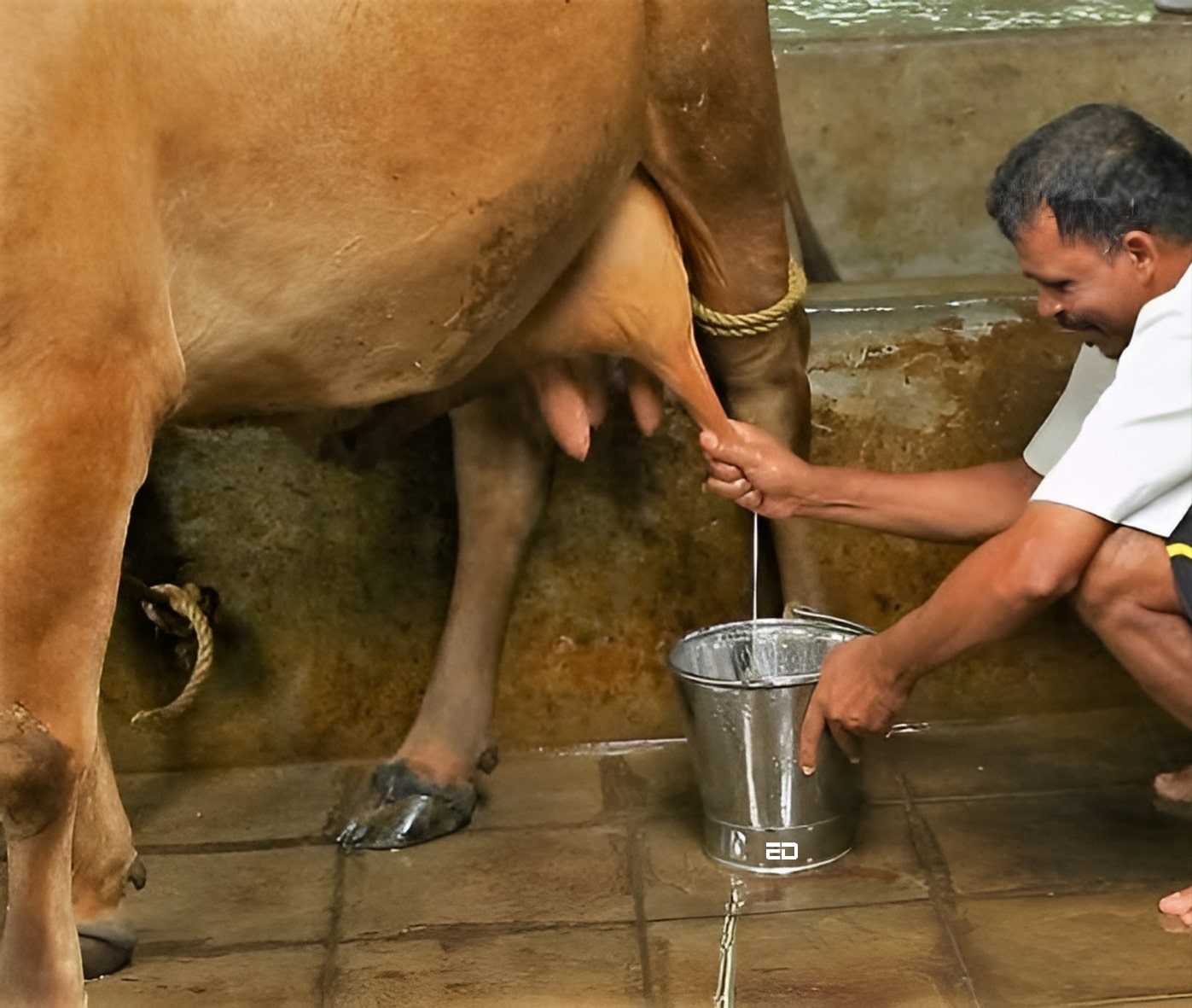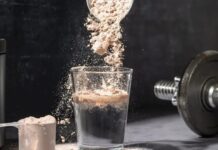The Food Safety and Standards Authority of India (FSSAI), on August 21, 2024, mandated companies to pull down labels of ‘A1’ and ‘A2’ on dairy products such as milk, ghee, butter, and curd.
What is A1 and A2? Why has the top regulator of food safety in the country banned such labels? Here are the answers to all your questions.
What Are A1 And A2 Products?
Milk is rich in proteins such as casein. A1 and A2 are different types of milk products that differ in the amount of proteins they contain.
While some studies say that A2 milk products are healthier, this claim has yet to be proven or substantiated by scientific evidence.
Holstein and Friesian, cow breeds originating in Northern Europe, are the source of A1 type of dairy products whereas Guernsey and Jersey are the types of cow breeds that give A2 milk. These cows originate in the Channel Islands and Southern France.
The primary difference between these two types is that of a single amino acid (building blocks of proteins) and the beta-casomorphin 7 (BCM7), produced at the time of digestion of A1 beta-casein, which is associated with a variety of health risks. Because of this, some studies say that A2 beta-casein has a lower probability of leading to such problems as cardiovascular disease and type 1 diabetes.
This is why A2 milk is deemed to be a safer and healthier option than A1 milk. However, there is no strong study supporting this fact. For example, the European Food Safety Authority, in 2009 published a 107-page scientific review that informed that differentiation between milk products concerning A1 and A2 was unnecessary.
Read More: ResearchED: What’s All The Hype Around Amul Vs. Nandini Milk In Poll Bound Karnataka
Why Has The FSSAI Pulled Down A1 And A2 Labels?
The FSSAI has condemned the advertising, promotion, and sales of milk and its products bearing the labels ‘A1’ and ‘A2’ due to their “misleading” nature.
The order stated, “It has come to the notice of FSSAI that several food business operators are selling/marketing milk and milk products such as ghee, butter, curd etc in the name of A1 & A2 under FSSAI licence number and/or registration certificate.”
Furthermore, the organisation made clear that the milk standards specified in the current Food Safety and Standards Regulations 2011 do not recognize any differentiation between products based on A1 and A2 types.
All companies that are using such labels have been ordered to remove them in the next six months. They have been instructed to remove all such claims and related information from their websites, while also stopping the production of such pre-printed labels.
FSSAI said, “E-commerce FBOs are instructed to remove all the claims related to A1 and A2 proteins from their websites immediately. Further, the concerned FBOs shall ensure strict compliance of the same with effect from the date of issuance of this direction.”
“People probably do not know this, but in India no dairy plant tests milk for A1/A2. There is no scientific basis to making any such claims; it’s more hypothetical and that’s why nobody should be allowed to promote milk as A1 or A2”, said Rattan Sagar Khanna, a senior dairy consultant.
“It cannot be more misleading to call ghee A2 as ghee does not contain protein; it’s merely milk fat. There is a need to crack down on such fraudulent claims and FSSAI has done the right thing”, he further added.
Similarly, an independent researcher, Stewart Truswell, published a study in the journal ‘Nature’, in 2005, concluding that “no convincing or probable evidence” that A2 type of milk products are better than A1.
Devendra Shah, chairman of Parag Milk Foods, also agreed, saying, “A1 and A2 is a category developed by marketing gimmick. It is essential that we eliminate misleading claims that can misinform consumers.”
How Were Companies Misusing The Labels?
The companies that put these labels on their products were misusing them and “fooling customers” by charging almost thrice more for products labelled as A2. The president of the Indian Dairy Association, R.S. Sodhi said, “Milk is inherently good for health because it provides complete nutrition—protein, calcium, fat, and vitamins—but to claim one type of protein is better than the other is unfounded.”
He also informed that the identification of dairy products as A1 or A2 is very time-consuming and resource-intensive for it requires in-depth genetic testing. “Practically speaking, it is not feasible for every small company to verify if milk is A1 or A2 during regular dairy operations,” he said.
Labelling products as A2 harms consumers because they are pushed to pay higher prices for A2 products, by branding them to be healthier and safer. About 20 companies on Amazon currently market their goods as A2 with their prices starting from Rs 700.
For example, The Print reports that ‘Vedic Ghee’ sells a product with the label “Vedic Ghee Premium A2 Gir Cow Cultured Ghee”, that costs approximately Rs 1989 and calls it the “Purest A2 Vedic Ghee for your family—Direct from Farm to your Home”. Similarly, other companies such as Anveshan claim their ghee to be A2 while ‘Country Delight’ sells their milk labelled as A2.
Therefore this decision by FSSAI is taken to be beneficial in raising consumer awareness. The consumer need not pay more for products that are marketed to be healthier than others until verified studies and regulatory institutions say so.
For example, since ghee cannot be categorised as A1 or A2, some companies do not directly label their ghee products as A2, rather they market them as made from A2 milk. FSSAI’s decision will end such malpractices and will have a positive and effective impact on consumers.
Hence, A2 is nothing but a marketing gimmick. Experts from the dairy industry also claim that it is a protein that is present in raw milk and vanishes as soon as we pasteurise it.
Similarly, A2 protein cannot be present in ghee as it is made by heating and churning curd. It can be found in those breeds of cows that produce A2 milk; one can milk them manually and consume the raw milk to benefit from A2 protein.
Image Credits: Google Images
Feature image designed by Saudamini Seth
Sources: India Today, NDTV, The Print
This post is tagged under: FSSAI, milk, dairy products, ghee, butter, A1, A2, healthy, diseases, misleading, consumer awareness, studies, research, food, regulatory
Disclaimer: We do not hold any right, or copyright over any of the images used, these have been taken from Google. In case of credits or removal, the owner may kindly mail us.
Other Recommendations:
Is Your Morning Tea Or Coffee Playing With Iron Absorption And Energy Levels?



































